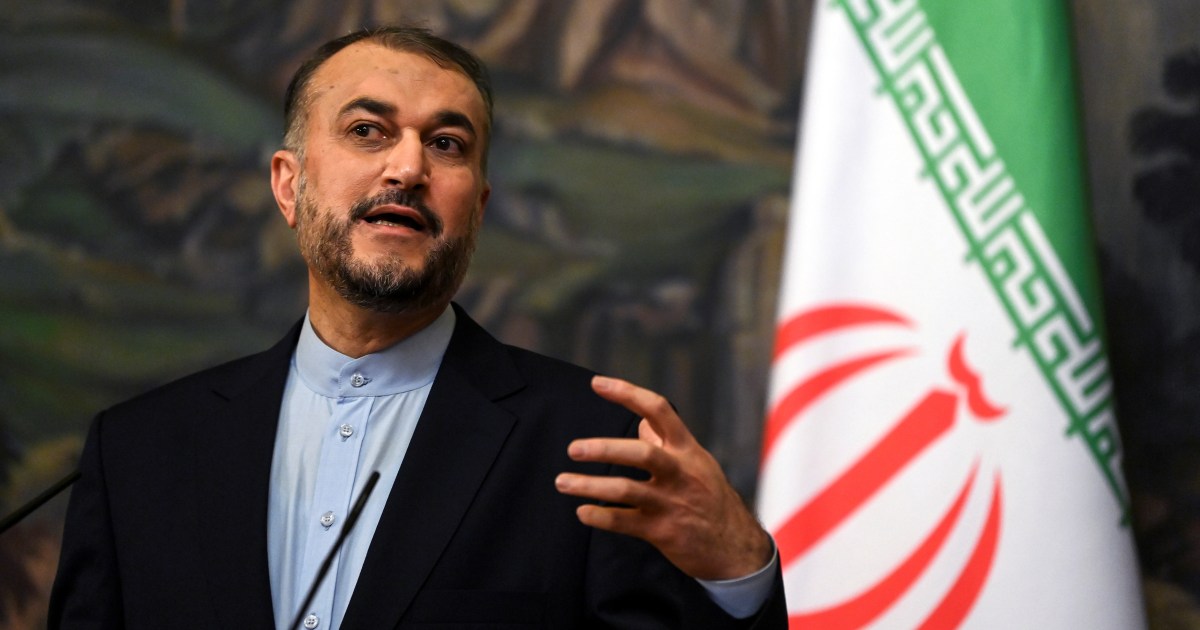Enrique Mora, the European Union negotiator responsible for coordinating the Iranian nuclear talks in Vienna, is expected to arrive in Tehran on Tuesday, with the aim of moving the file of negotiations stalled since March 11th.
Iranian Foreign Ministry spokesman Saeed Khatibzadeh said that "Moura will meet this week with Assistant Foreign Minister for Political Affairs Ali Bagheri, Iran's chief negotiator."
He also noted that "Mr. Mora requested holding other meetings (with Iranian officials) inside and outside the Ministry of Foreign Affairs, but we have to see what happens."
In this context, Khatibzadeh stressed that Tehran is "committed to the diplomatic path to reach a strong, sustainable and trustworthy agreement" in the event that Washington agrees on the disputed points.
He added, "Mr. Mora's visit makes the negotiations progress in the right direction," but that "does not mean that he carries a new message after the negotiations stopped, because messages are constantly exchanged between Iran and the United States, through the European Union."
More than a year ago, Iran and the powers involved in the 2015 agreement - France, Britain, Germany, Russia and China - began talks in Vienna in which the United States, which withdrew unilaterally from the agreement in 2018, indirectly participated in the era of former President Donald Trump.
Talks about the Iranian nuclear file were suspended last March, for several reasons, most notably Tehran's insistence that Washington remove the Iranian Revolutionary Guard from the list of foreign terrorist organizations.
In this context, Khatibzadeh asked the media "not to limit the outstanding issues between Iran and the United States to one topic, such as the issue of the Revolutionary Guards." He also said, without giving details, "I respected the red lines set by the higher authorities of the Islamic Republic, and that is why we have reached this situation." today".
He stressed that he could go to Vienna after Mora's visit and sign a nuclear agreement if "the United States decided today to respect the rights of the Iranian people."
The negotiations, which are being coordinated by the European Union, aim to return Washington to the agreement and lift the sanctions it imposed on Tehran after its withdrawal, in exchange for the latter's compliance again with its commitments that it retracted after the American move.
Iranian Foreign Minister Hossein Amir Abdollahian said that the visit of the European coordinator for nuclear negotiations, Enrique Mora, to Tehran on Tuesday comes within the framework of continuing correspondence between Iran's top negotiators and the European Union.
He added - in a press statement - that experts from the Iranian and European sides will follow up in Tehran the previous talks, stressing that the nuclear negotiations are proceeding on their normal course and that this path is continuing, as he put it.
European Union foreign minister Josep Borrell told the British Financial Times he was looking for a "middle way" to end the deadlock that threatens to undermine more than a year of European diplomatic efforts to strike a deal that would see the United States join the EU. 2015 agreement and lifting of sanctions on Iran.
In return, the Islamic Republic will significantly reduce its nuclear activity.
Borrell told the newspaper last Saturday that it was he who wanted the EU negotiator to go to Tehran to discuss the issue, but that Iran "was very reluctant", describing Mora's mission as "the last cartridge".
Qatari efforts
In a related context, the Iranian Foreign Ministry spokesman said that the Emir of Qatar, Sheikh Tamim bin Hamad Al Thani, will visit Tehran soon, to discuss bilateral, regional and international issues.
Reuters reported - yesterday, quoting a source - that the Emir of Qatar will visit Iran, Germany, Britain and other European countries on a trip that begins this week, in which he is expected to discuss efforts to revive the 2015 Iranian nuclear agreement and energy security in Europe.
The source added that the Emir of Qatar's trip also aims to push the parties to the Iranian nuclear deal to "a new common ground."
This comes after indirect talks between the United States and Iran to revive the agreement reached a dead end, due to Tehran's insistence on removing the Iranian Revolutionary Guard from the US list of foreign terrorist organizations.
Under the deal, Iran agreed to curb its nuclear program in exchange for sanctions relief.
Washington withdrew from the agreement in 2018 and reimposed US sanctions, and Tehran responded by gradually violating the nuclear restrictions enshrined in the agreement.

